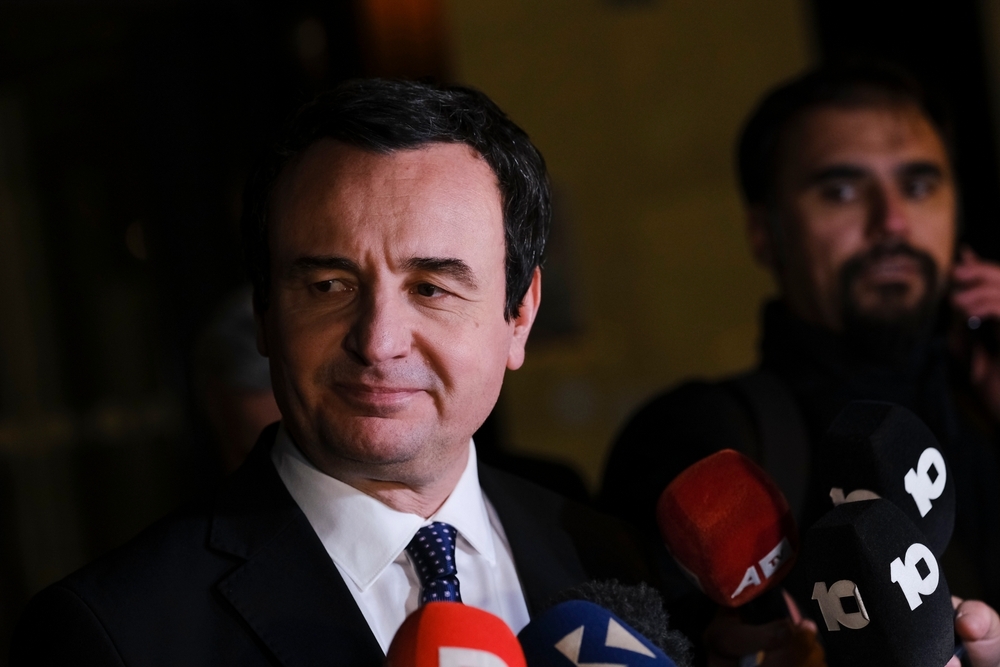Kosovo, an endless crisis
Seven months after the elections, Kosovo does not have a parliament yet: the assembly finally elected a president, but then stalled over the choice of a Serbian vice president. A situation that remains divisive and uncertain

Kosovo-crisi-senza-fine-1
Kosovo parliament - © Ajdin Kamber/Shutterstock
Kosovo has entered a new phase of institutional uncertainty. The “Vetëvendosje Movement”, which won the elections but did not secure a parliamentary majority, considers the Assembly constituted, but this is contested by opposition parties as well as by jurists.
Six and a half months after the parliamentary elections and following 60 continuations of the constitutive session of the Assembly, Dimal Basha, proposed by “Vetëvendosje”, was finally elected Speaker. He secured this post after receiving votes from the “Democratic Party of Kosovo” (PDK) and the “Alliance for the Future of Kosovo” (AAK).
Following the election of the Speaker, three deputy speakers from Albanian parties were also elected: Albulena Haxhiu, Vlora Çitaku, and Kujtim Shala. Emilija Rexhepi was elected deputy speaker from non-Serb minorities, while the process stalled for two sessions at the voting of the Serb community’s deputy speaker candidate, whose election ultimately failed over the weekend.
All candidates from the Serb List did not receive the support of political parties. Neither did another MP from the Serb community, Nenad Rašić, from the party For Freedom, Justice and Survival, manage to get elected, as he received 56 votes in favor—five short of the required 61. “Vetëvendosje” insisted on Rašić’s election, which is currently a minister in Albin Kurti’s caretaker government, but other parties did not support him, arguing that his election would be unlawful.
The failure to elect any of the Serb community MPs put forward for the position means the Assembly no longer has anyone from the Serb community to nominate for deputy speaker.
In this situation, Speaker Basha declared the constitutive session closed, even though the Rules of Procedure of the Assembly state that the constitutive session ends with the election of the Speaker and all five deputy speakers.
“As the Assembly, we have no other way forward regarding the deputy speaker from the Serb community; therefore, in this case, I consider that we have exhausted point four of the agenda, and I declare this constitutive session closed,” said Basha, arguing that the failure to elect one of the six members of the Assembly Presidency cannot become an obstacle to the constitution of the Assembly.
The positions of political parties
Parties that were in opposition in the previous legislature have deemed the Assembly’s constitution and the closure of the session by Speaker Dimal Basha unconstitutional.
The chairman of the PDK, Memli Krasniqi, accused “Vetëvendosje” leader Albin Kurti of blocking the process of forming new institutions. “It is simply the continuation of Albin Kurti’s political game, deepening the political crisis we are in, continuing his hesitation to enter constitutional deadlines because he doesn’t have the numbers to become prime minister, and wanting to continue the illegal usurpation of the Prime Minister’s Office as he has been doing for some time”, said Krasniqi.
Meanwhile, the chairman of the LDK, Lumir Abdixhiku, criticized not only “Vetëvendosje” but also the other two Albanian parties that, according to him, helped the Assembly end up with a leader who violates the Constitution.
“At this point, the naivety of the other parties is also apparent, as they are not only keeping the Assembly blocked but have also left us with a Speaker like Dimal Basha, who not only continued violating the Constitution but also claimed the Assembly was constituted, misinterpreting the Constitution of Kosovo,” said Abdixhiku.
Following the latest developments, Deputy Speaker from “Vetëvendosje”, Albulena Haxhiu, stated that there are two alternatives.
“We cannot remain hostage to those who deny our existence as a state. Therefore, it is extremely important that we move forward with the current presidency—meaning, in addition to the Speaker of the Assembly, with the already elected deputy speakers of the Assembly of Kosovo. We are interested in moving forward either with a new government or with elections, because we have no other alternative,” Haxhiu declared.
What do the Constitution and the Assembly’s Rules of Procedure say about deputy speakers?
Article 67 of the Constitution of the Republic of Kosovo regulates the election of the Speaker and the five deputy speakers of the Assembly. Paragraph 4 of this article stipulates that two deputy speakers represent communities that are not in the majority in the Assembly, and they are elected by the majority of all MPs.
“One deputy speaker shall be from among the MPs holding seats reserved or guaranteed for the Serb community, and the other deputy speaker from among the MPs holding seats reserved or guaranteed for other non-majority communities,” this paragraph of the Constitution specifies.
Meanwhile, point 5 of Article 12 of the Rules of Procedure of the Assembly provides that the constitutive session ends with the election of the Speaker and the deputy speakers of the Assembly.
Point 6.1 further specifies that “the candidate for deputy speaker from the Serb community shall be proposed by the majority of MPs from the Serb community.”
The case in the Constitutional Court
The voting for deputy speakers from minority communities was held separately, unlike in the past when they were voted in as a package.
This move was challenged at the Constitutional Court by the Serb List, which holds nine out of the ten reserved seats for Serbs in the Assembly and enjoys the support of Serbia.
“Constitutional and democratic principles have been gravely violated, while the Serb people have been denied the exercise of their guaranteed rights,” their statement reads, referring to the Assembly of the Republic of Kosovo as the “Assembly of Pristina,” thus continuing their stance of non-recognition of Kosovo’s institutions.
Assessments from Assembly monitors and jurists
The constitutive session cannot be considered concluded without the election of all deputy speakers, says Eugen Cakolli, Senior Researcher at the Kosovo Democratic Institute. He states that it is becoming increasingly clear that the country is being deliberately pushed towards a new constitutional crisis, which, in his view, is even deeper than the one over the election of the Assembly Speaker.
“There can be no realization of anything—no development of procedures, no exercise of parliamentary functions, nor the running of constitutional deadlines. The Speaker’s latest conclusions (‘inventions’) have no legal value. This entire political nonsense can now only be resolved by the Court—either by confirming the failure of the Assembly’s constitution within the 30-day deadline, or by declaring the process invalid and requiring a repeat of the voting procedure for the community deputy speakers,” Cakolli emphasized.
The same assessment is shared by researcher Albert Krasniqi from the organization Democracy Plus.
“The process of constituting the Assembly must return to where it was left: at the election of the two deputy speakers from the non-majority communities. Only after completing this step can the Assembly be considered constituted, and its Presidency legitimate to exercise the functions foreseen by the Constitution and the Rules of Procedure,” Krasniqi stated.
Former Deputy President of the Constitutional Court, Kadri Kryeziu, also sees dilemmas regarding the completion of the constitution process. He cites point 5 of Article 12 of the Rules of Procedure of the Assembly. “As this legal provision is currently read, there is room to say that the constitutive session has not yet ended,” Kryeziu assessed.
The regular parliamentary elections were held on February 9, while the constitutive session of the Assembly began on April 15. Since then, dozens of session continuations have failed, as “Vetëvendosje” proposed candidates who were not supported by other parties, until August 26 when Dimal Basha was elected Speaker.
During this period, several cases were submitted to the Constitutional Court due to uncertainties over how to continue the process, until August 8 when the Court ordered the Assembly to elect a new Speaker within 30 days through open voting, with the same candidate to be put forward no more than three times.









